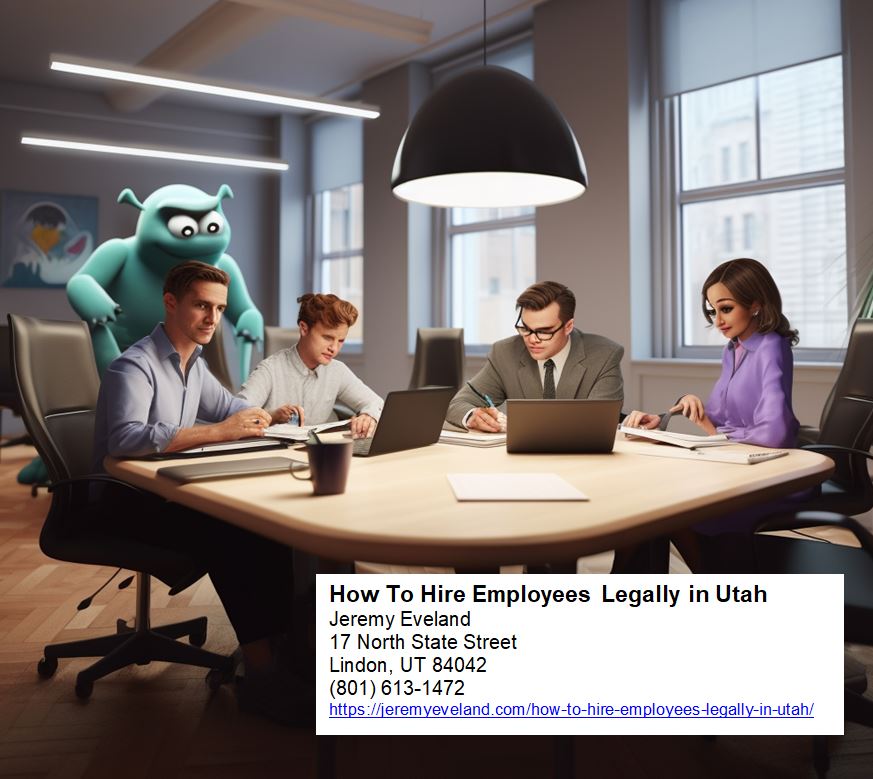In today’s complex business landscape, it is crucial for both business owners and workers to be aware of worker misclassification laws. Worker misclassification refers to the practice of classifying workers as independent contractors rather than employees, often leading to various legal and financial consequences. This article will delve into the intricacies of worker misclassification laws, highlighting key considerations for businesses to avoid potential legal risks. By understanding the implications of misclassification and the steps to ensure compliance, business owners can protect themselves from costly lawsuits and penalties. If you have any concerns or questions about worker misclassification, it is highly recommended to consult with a knowledgeable lawyer who specializes in this area of law.

Overview of Worker Misclassification Laws
Worker misclassification is a legal issue that arises when an individual is mistakenly classified as an independent contractor rather than an employee. This misclassification can have significant consequences for both the worker and the employer. Understanding the laws surrounding worker misclassification is crucial for businesses to ensure compliance and avoid legal and financial repercussions.
Definition of Worker Misclassification
Worker misclassification occurs when an individual is classified as an independent contractor but should actually be classified as an employee. The distinction between the two classifications is important because it determines the rights and benefits that the worker is entitled to receive. Independent contractors are considered self-employed and are responsible for paying their own taxes, while employees are afforded certain protections under labor laws, such as minimum wage, overtime pay, and benefits.
Importance of Understanding Worker Misclassification Laws
Understanding worker misclassification laws is vital for both employers and workers. For employers, misclassifying workers can lead to legal repercussions, such as fines, penalties, and potential lawsuits. It is essential for businesses to classify their workers correctly to avoid these consequences. Similarly, workers need to be aware of their rights and ensure that they are classified appropriately to receive the benefits and protections they are entitled to.
Common Types of Worker Misclassification
There are several common types of worker misclassification. One type is when employers intentionally misclassify workers as independent contractors to avoid providing benefits and protections. Another type is when employers mistakenly classify workers as independent contractors due to a lack of understanding of the law. Finally, some workers may prefer to be classified as independent contractors, although they might meet the criteria of an employee, in order to have more flexibility and freedom in their work.
Consequences of Worker Misclassification
Worker misclassification can have significant consequences for both employers and workers. Employers who misclassify workers may face financial repercussions, including fines, penalties, and back taxes. They may also be required to provide retroactive benefits to misclassified workers. Workers who are misclassified may be deprived of important rights and benefits, such as minimum wage, overtime pay, workers’ compensation, and unemployment insurance. Misclassification can also impact a worker’s ability to access certain benefits, such as healthcare and retirement plans.
Factors for Determining Worker Classification
Various factors are considered when determining whether an individual should be classified as an employee or an independent contractor. These factors aim to evaluate the level of control the employer has over the worker, the integration of the worker into the business, the opportunity for profit or loss, the investment in equipment or facilities, and the permanency of the relationship between the worker and the employer. These factors help determine the level of independence and reliance the worker has on the employer.
Control Over Work
The level of control an employer has over a worker is a crucial factor in determining worker classification. If an employer dictates how, when, and where a worker completes their tasks and provides detailed instructions, the worker is more likely to be considered an employee. However, if a worker has more autonomy and control over their work, they may be classified as an independent contractor.
Integration into the Business
Another factor to consider is the level of integration a worker has into the employer’s business. If a worker is closely integrated into the day-to-day operations of the business, works alongside employees, and is subject to the same rules and policies, they are more likely to be classified as an employee. On the other hand, if a worker operates independently and does not rely heavily on the employer’s business, they may be classified as an independent contractor.
Opportunity for Profit or Loss
The opportunity for profit or loss is a significant factor in determining worker classification. If a worker has the ability to make a profit or incur a loss based on their work performance, they are more likely to be classified as an independent contractor. Conversely, if a worker does not have the opportunity for significant profit or loss and receives a fixed payment for their services, they may be classified as an employee.
Investment in Equipment or Facilities
The level of investment a worker has in equipment or facilities is another factor for determining worker classification. Independent contractors typically invest in their own tools, equipment, and workspace. In contrast, employees generally rely on the employer to provide the necessary tools and facilities to perform their work.
Permanency of the Relationship
The permanency of the relationship between the worker and the employer is also considered in determining worker classification. If a worker has an ongoing relationship with the employer rather than a temporary or project-based arrangement, they are more likely to be classified as an employee. Independent contractors typically work on a project basis or have the ability to end the relationship with the employer at any time.
Laws and Regulations on Worker Classification
Several laws and regulations govern worker classification, including the Fair Labor Standards Act (FLSA) and the Internal Revenue Code (IRC). These laws establish guidelines for determining whether a worker should be classified as an employee or an independent contractor. In addition to federal laws, each state may have its own regulations that businesses must adhere to.
Fair Labor Standards Act (FLSA)
The Fair Labor Standards Act (FLSA) is a federal law that establishes minimum wage, overtime pay, and child labor standards. It also provides guidelines for determining worker classification. The FLSA uses an “economic reality” test to evaluate whether a worker is economically dependent on an employer, making them an employee, or in business for themselves as an independent contractor.
Internal Revenue Code (IRC)
The Internal Revenue Code (IRC) is another important law for determining worker classification, specifically for tax purposes. The IRC uses a series of tests, including the control test, the financial aspects test, and the relationship test, to assess whether a worker should be considered an employee or an independent contractor for tax purposes.
State-Specific Regulations
In addition to federal laws, many states have their own regulations and tests for determining worker classification. These state-specific regulations can vary significantly, making it crucial for businesses to understand and comply with the laws of the state(s) in which they operate.
Implications for Employers
Misclassification of workers can have serious implications for employers. It is important for employers to be aware of their legal obligations and the potential consequences of worker misclassification.

Legal Obligations of Employers
Employers have legal obligations to properly classify their workers and provide the rights and benefits afforded to employees. This includes adhering to minimum wage laws, providing overtime pay, offering benefits such as healthcare and retirement plans, and complying with other labor laws.
Liability for Worker Misclassification
Employers who misclassify workers may be held liable for a range of legal and financial consequences. They may be subject to fines, penalties, and back taxes for failing to comply with labor laws. Additionally, misclassified workers may file lawsuits to seek compensation for unpaid wages, benefits, and other damages resulting from the misclassification.
Fines and Penalties
Employers who misclassify workers can face significant fines and penalties. The exact amount of these fines and penalties varies depending on the specific laws violated and the severity of the violation. Fines can range from hundreds to thousands of dollars per misclassified worker, and repeated violations can result in higher penalties.
Impact on Business Operations
Misclassification of workers can have a significant impact on business operations. It can lead to increased costs due to the potential need to provide retroactive benefits, pay fines and penalties, and defend against lawsuits. It can also damage a company’s reputation and consumer trust if it becomes public knowledge that the company has misclassified workers. It is essential for businesses to understand and comply with worker classification laws to avoid these negative consequences.
Misclassification of Independent Contractors
Misclassification of independent contractors occurs when individuals are mistakenly classified as independent contractors when they should actually be classified as employees. This misclassification can have serious implications for both the workers and the employers involved.
Definition of Independent Contractors
Independent contractors are self-employed individuals who offer their services to clients or businesses. They are generally hired to complete specific projects or tasks and are not considered employees of the hiring entity. Independent contractors typically have more autonomy and control over their work than employees.
Factors that Determine Independent Contractor Status
Several factors are considered when determining whether an individual should be classified as an independent contractor or an employee. These factors include the degree of control the hiring entity has over the work, the level of integration into the business, the opportunity for profit or loss, the investment in equipment or facilities, and the permanency of the relationship between the worker and the hiring entity.
Consequences of Misclassifying Independent Contractors
Misclassifying independent contractors as employees can lead to legal and financial consequences for employers. Employers may be required to pay back wages, overtime pay, and other benefits to misclassified workers. They may also be subject to fines, penalties, and potential lawsuits by misclassified workers seeking compensation for unpaid wages and benefits.
Preventing Misclassification of Independent Contractors
To prevent the misclassification of independent contractors, businesses should carefully evaluate the nature of the working relationship and consider the relevant factors that determine independent contractor status. Establishing written contracts that clearly define the independent contractor relationship can also help mitigate the risk of misclassification.
Misclassification of Employees
Misclassification of employees occurs when individuals are mistakenly classified as independent contractors instead of employees. This misclassification can have serious implications for workers in terms of their rights and benefits.
Definition of Employees
Employees are individuals who are hired to work for an employer and are subject to the employer’s control and direction. They are entitled to certain rights and benefits under labor laws, such as minimum wage, overtime pay, and workers’ compensation.
Factors that Determine Employee Status
Various factors are considered when determining employee status. These factors include the degree of control the employer has over the work, the level of integration into the business, the opportunity for profit or loss, the investment in equipment or facilities, and the permanency of the relationship between the worker and the employer.
Consequences of Misclassifying Employees
Misclassifying employees as independent contractors can result in workers being deprived of important rights and benefits. Misclassified employees may not receive minimum wage, overtime pay, workers’ compensation, or other benefits to which they are legally entitled. Misclassification can also restrict access to healthcare, retirement plans, and other employer-provided benefits.
Protecting Employees’ Rights
It is crucial for workers to understand their rights and ensure that they are properly classified as employees. If workers believe they have been misclassified, they should consult with an attorney who specializes in employment law to explore their options for seeking compensation and protecting their rights.
Challenges and Controversies
Worker misclassification laws are not without challenges and controversies. Several factors contribute to the ongoing debate and differing interpretations of the laws surrounding worker classification.
Rise of the Gig Economy
The rise of the gig economy, characterized by short-term, freelance, and independent contractor work, has complicated the issue of worker classification. The gig economy blurs the lines between employees and independent contractors, making it increasingly difficult to determine accurate worker classification.

Disputes Between Workers and Businesses
Disputes between workers and businesses regarding worker classification are common. Workers may argue that they have been misclassified as independent contractors when they should be classified as employees. These disputes often lead to legal battles and decisions that shape the interpretation and enforcement of worker misclassification laws.
Conflicting Legal Interpretations
The interpretation of worker misclassification laws can vary, leading to conflicting legal decisions. Different courts and jurisdictions may have differing interpretations of the factors used to determine worker classification. This lack of consistency can make it challenging for businesses to navigate and comply with the laws.
Differing Classification Tests Across Jurisdictions
Worker classification tests can vary across jurisdictions, including different standards set by federal, state, and local governments. These varying tests can create confusion and compliance challenges for businesses operating in multiple jurisdictions.
Enforcement and Compliance
Enforcement and compliance with worker misclassification laws are essential to protect the rights of workers and ensure fair and lawful business practices.
Role of Government Agencies
Government agencies, such as the Department of Labor and the Internal Revenue Service (IRS), play a significant role in enforcing worker misclassification laws. These agencies are responsible for investigating complaints, conducting audits, and taking legal action against employers who misclassify workers.
Audits and Investigations
Government agencies may conduct audits and investigations to determine whether employers are correctly classifying their workers. These audits typically involve reviewing employment records, contracts, and other relevant documents to assess the nature of the working relationship and determine accurate worker classification.
Voluntary Classification Settlement Program
The Internal Revenue Service (IRS) offers a Voluntary Classification Settlement Program (VCSP) for employers who want to correct past misclassifications and achieve compliance. The program allows eligible employers to reclassify workers as employees while minimizing the financial consequences, such as reduced penalties and limits on liability for past payroll taxes.
Best Practices for Compliance
To ensure compliance with worker misclassification laws, businesses should consider implementing best practices. These practices include conducting regular audits of worker classification, seeking legal counsel to navigate complex regulations, maintaining detailed records of worker agreements and payments, and staying informed about changes and updates to worker classification laws.
Recent Developments in Worker Misclassification Laws
Worker misclassification laws continue to evolve, with various recent developments shaping the legal landscape.
Landmark Court Cases
Several landmark court cases have influenced the interpretation and enforcement of worker misclassification laws. These cases, often involving high-profile companies, have resulted in significant legal precedents that impact how businesses classify their workers.
Legislative Changes
Legislative changes at the federal, state, and local levels can impact worker misclassification laws. New laws may address specific issues related to worker classification or introduce stricter penalties for employers who misclassify workers. Staying informed about legislative changes is crucial for businesses to remain compliant.
Impact of Technology and Remote Work
The advancement of technology and the growth of remote work arrangements have introduced new challenges in worker classification. The ability to work remotely and utilize digital platforms has further blurred the lines between independent contractors and employees, requiring ongoing adaptation of worker misclassification laws.
Consulting an Attorney
Consulting an attorney experienced in worker misclassification laws is crucial for businesses and individuals to navigate the complexities of worker classification and ensure compliance.
When to Consult an Attorney
It is advisable to consult an attorney when dealing with worker classification issues, such as when determining whether to classify a worker as an employee or an independent contractor, when facing an audit or investigation by a government agency, or when seeking guidance on compliance with worker misclassification laws.
Benefits of Legal Representation
Having legal representation can provide several benefits when dealing with worker misclassification issues. An attorney can provide a thorough understanding of the relevant laws, help evaluate the nature of the working relationship, navigate audits and investigations, and protect the rights and interests of the employer or worker.
Choosing the Right Attorney
When choosing an attorney, it is important to select someone with expertise in employment law and specific knowledge of worker misclassification laws. The attorney should have a track record of successfully representing clients in similar cases and be able to provide guidance tailored to the client’s specific needs and circumstances.
FAQs:
-
What are the potential fines for misclassifying workers? Fines for misclassifying workers can vary depending on the specific laws violated and the severity of the violation. They can range from hundreds to thousands of dollars per misclassified worker. Repeated violations can result in higher penalties.
-
How can businesses prevent misclassification of independent contractors? To prevent misclassification of independent contractors, businesses should carefully evaluate the nature of the working relationship and consider the relevant factors that determine independent contractor status. Establishing written contracts that clearly define the independent contractor relationship can also help mitigate the risk of misclassification.
-
What are the consequences of misclassifying employees as independent contractors? Misclassifying employees as independent contractors can result in workers being deprived of important rights and benefits. Misclassified employees may not receive minimum wage, overtime pay, workers’ compensation, or other benefits to which they are legally entitled. Misclassification can also restrict access to healthcare, retirement plans, and other employer-provided benefits.
-
What role do government agencies play in enforcing worker misclassification laws? Government agencies, such as the Department of Labor and the Internal Revenue Service (IRS), play a significant role in enforcing worker misclassification laws. They are responsible for investigating complaints, conducting audits, and taking legal action against employers who misclassify workers.
-
When should I consult an attorney regarding worker misclassification issues? It is advisable to consult an attorney when dealing with worker misclassification issues, such as when determining worker classification, facing audits or investigations, or seeking guidance on compliance with worker misclassification laws. An attorney experienced in employment law can provide valuable advice and representation throughout the process.


























